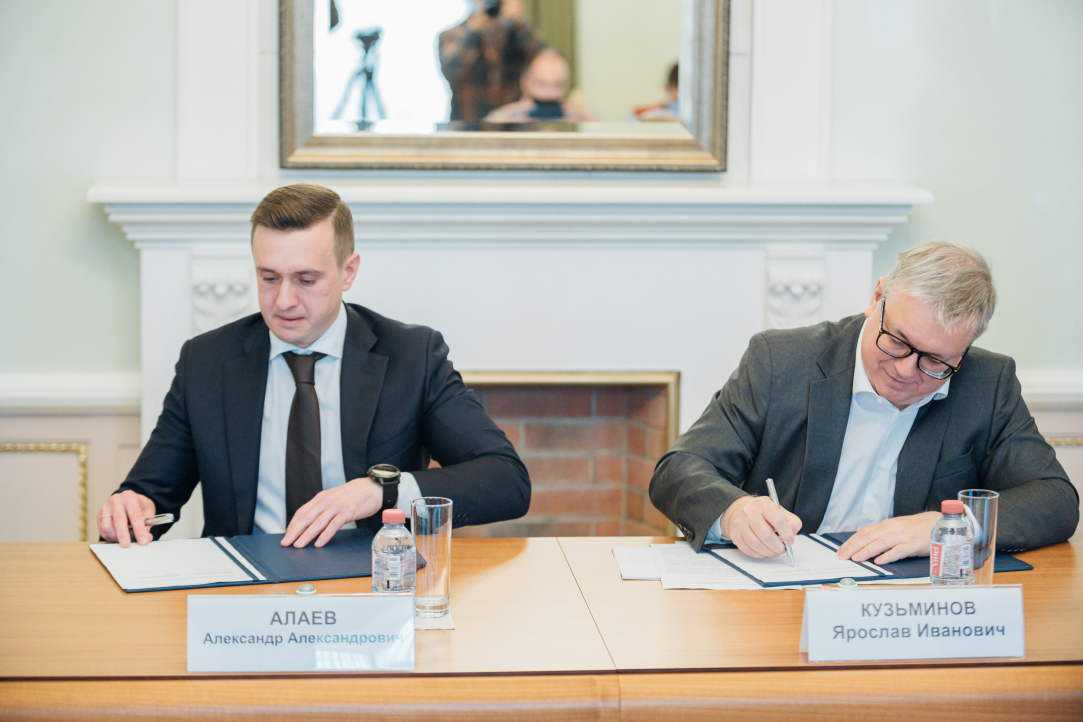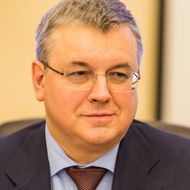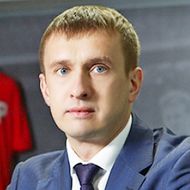HSE University and the Russian Football Union Sign Memorandum of Cooperation

HSE University and the Football Union of Russia (FUR) have agreed to conduct joint scientific and technological research and events. The Memorandum of Cooperation and Collaboration was signed by HSE Rector Yaroslav Kuzminov and FUR Head Alexander Alaev. One of the most urgent projects will be the development of a system for appointing referees to matches.
The signing ceremony took place at HSE University’s Pokrovka complex located on Pokrovsky Boulevard. The document provides for the ‘cooperation and collaboration of the Parties, including the agreement on the basic principles and procedure for cooperating in the preparation, organization, and implementation of various scientific and technical research and activities by the Parties aimed at improving the mechanisms for making managerial decisions in the field of football.’
HSE Rector Yaroslav Kuzminov emphasized the importance of using modern digital technology and scientific achievements in modern athletics. With the joint help of economists and computer scientists, science today has the ability to quickly produce applied results, he said. Cooperation with the FUR is very important for the University, because football is Russia’s most popular sport and an integral part of the life of Russians, the rector added.

‘We are witnessing a data revolution in sports,’ Yaroslav Kuzminov said. ‘Our clubs, leagues, and federations need people who can work with this data.’ However, the rector noted, these kinds of specialists are sorely lacking now, and Russia significantly lags behind the United States and Europe in this regard.
HSE University trains professional staff for the sports industry and conducts a large range of scientific and practical research in this area, including actively working with the field of Russian football. In particular, experts from the Laboratory of Sports Studies based at the HSE’s Faculty of Economic Sciences have developed software for generating season calendars for the Russian Premier League.
Yaroslav Kuzminov

We welcome scientific cooperation with federations and clubs to foster the technological advancement of Russian football. Our research will enhance transfer policy analysis and ticket policy analysis, and our mathematicians can help with match strategy development. We already create the schedule for the Russian Premier League, and that is something that is critical.
In turn, the FUR Head Alexander Alaev, too, stressed the fact that sports and science are closely connected by many factors. He underscored the importance of signing a memorandum with HSE University, which is ‘a leader in economics education.’ The F began its cooperation with the University on two highly controversial issues: season calendars and referee assignment. Thanks to the University’s work, calendar complaints have significantly lessened. Now the next step is to launch a recommendation system for appointing referees for matches.

Alexander Alaev

The Football Union of Russia has never hidden its intention to become the foremost federation in Russian sports and take its rightful place among the best football federations in Europe and the world. We successfully took on the challenge of hosting the World Championship, which has been lauded numerous times as the best World Cup in history. And this attests to our capacity for being a world class institution. But to become a model federation that is the best, you need the right partners. We are very sensitive to each and every one of our partner relationships—each of our partners is, in fact, a leader in their field. It is especially pleasing that we continue our partnership with HSE University.
The referee appointment recommendation system was presented by Dmitry Dagaev, head of the HSE Laboratory of Sports Studies. It is based on a modified Gale-Shapley algorithm, which allows you to distribute objects of one type over objects of another type quite well. The system takes into account referee ratings, match ratings, and the principles by which certain events influence preferences for a particular referee for a particular match (e.g., geographical limitations, injuries, disqualifications, etc.). Alexander Alaev hopes that this kind of system will lead to fewer referee appointment complaints.

